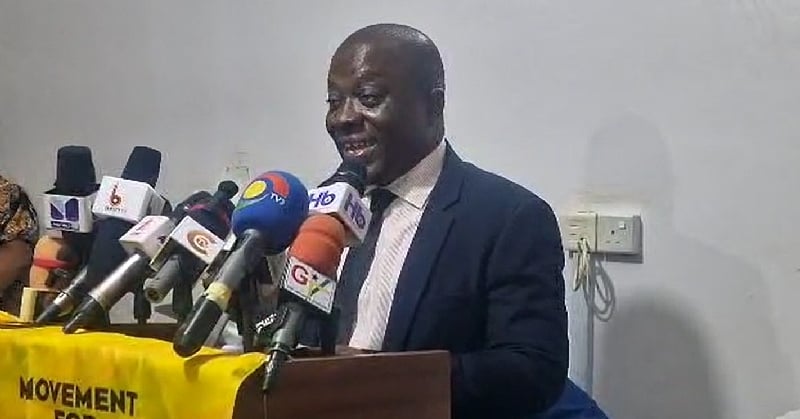The Movement for Change, an independent political group participating in the 2024 general elections, has advocated for a significant restructuring of Ghana’s foreign exchange market. Their primary recommendation is the dissolution of all forex bureaux, transferring all foreign currency exchange operations exclusively to commercial banks and the Bank of Ghana. This, they argue, will enhance transparency, regulation, and control over the forex market, contributing to the stabilization of the Ghanaian cedi and bolstering confidence in the financial sector. The group believes that forex bureaux contribute to the volatility of the cedi and create an avenue for unregulated and potentially illicit transactions. By channeling all forex transactions through established financial institutions, the government can better monitor currency flows, enforce regulations, and potentially curb speculative activities that negatively impact the exchange rate.
The Movement for Change’s call for the dissolution of forex bureaux comes amidst broader concerns about the health of the Ghanaian economy and the performance of the cedi. The group views the existing forex market structure as a significant contributor to the cedi’s depreciation and the overall economic instability. They contend that the decentralized nature of forex bureaux makes it difficult for the government to effectively regulate the market and implement monetary policies. The proposed shift to bank-only forex transactions aims to streamline the process, making it easier for the central bank to intervene and manage exchange rate fluctuations. This, they assert, is a crucial short-term measure needed to stabilize the cedi while longer-term solutions are developed.
Beyond the forex market restructuring, the Movement for Change also proposes several other policy interventions to address the economic challenges facing Ghana. They have called for the elimination of the betting tax and the maintenance of a flat tax rate for Micro, Medium, and Small Enterprises (MSMEs). The group argues that the betting tax disproportionately affects low-income earners and provides minimal revenue for the government. Furthermore, they believe that maintaining a flat tax rate for MSMEs is crucial for supporting their growth and fostering job creation. These businesses, they contend, are the backbone of the Ghanaian economy and deserve a stable and predictable tax environment to thrive.
The Movement for Change’s proposals reflect a broader concern about the government’s approach to economic management. They argue that the current policies are inadequate to address the underlying challenges facing the economy and that more decisive action is needed. Specifically, they believe that the government needs to focus on boosting exports, promoting import substitution, and creating a more conducive environment for businesses to flourish. They see their proposed interventions as necessary steps towards achieving these goals and stabilizing the Ghanaian economy.
The group emphasizes the importance of a multi-pronged approach to address the current economic situation. While they advocate for short-term measures like dissolving forex bureaux and adjusting tax policies, they also recognize the need for longer-term solutions. These include strengthening export capacity, encouraging local production of goods and services currently imported, and implementing structural reforms to improve the overall business environment. They believe that a combination of short-term stabilization measures and long-term structural reforms is necessary to achieve sustainable economic growth and improve the living standards of Ghanaians.
In their view, restoring confidence in the financial sector is paramount for attracting investment, stimulating economic activity, and ultimately achieving sustainable growth. They maintain that the current volatility in the forex market undermines investor confidence and hampers economic development. By implementing their proposed reforms, the Movement for Change hopes to create a more stable and predictable economic environment that will encourage investment, support businesses, and ultimately improve the lives of ordinary Ghanaians. They believe that the government needs to take bold action to address the current economic challenges and create a more prosperous future for the country.














